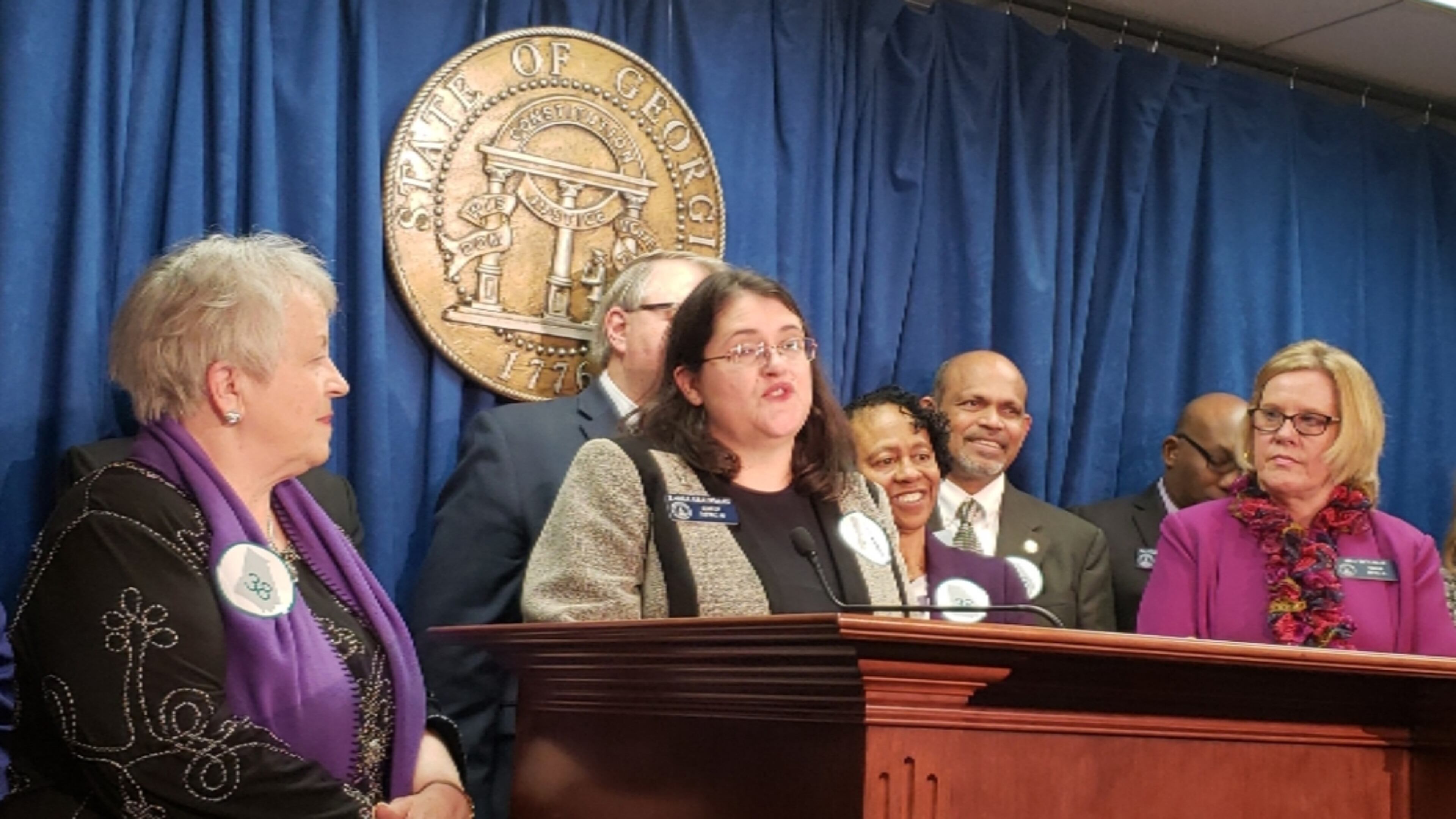Bipartisan efforts push for Georgia to ratify Equal Rights Amendment

In the era of #MeToo and a re-energized focus on women’s rights, Georgia’s female senators are joining forces in a renewed effort to approve an equal rights amendment to the U.S. Constitution.
State Sens. Renee Unterman of Buford and Nan Orrock of Atlanta, a Republican and Democrat, respectively, have filed companion legislation in the Senate that would ratify the Equal Rights Amendment that was approved by Congress in the 1970s.
The effort is part of a national movement in support of adding a guarantee of equal rights regardless of sex to the Constitution. Georgia is one of several states working to ratify the amendment. Efforts in Virginia stalled last week, and activists in Arizona have started buying billboards supporting the ratification.
Last year, Illinois became the 37th state to ratify the amendment. Thirty-eight are needed.
Orrock, who filed Senate Resolution 55 earlier this week, said passing the legislation is common sense.
“Women come as members of all parties, of all political stripes and all professions,” Orrock said. “There’s a broad consensus across this country that women’s rights should be enshrined in the highest laws and the (commanding) documents of our democracy.”
But Senate Majority Leader Mike Dugan, R-Carrollton, said he wants to make sure there are no unintended consequences to ratifying a nearly 50-year-old constitutional amendment before he decides to support the measure.
“If I can go through this legislation and determine that we are not going to inadvertently set females back by trying to move forward, then that would be something I support,” he said.
State Sen. Jen Jordan, an Atlanta Democrat and attorney, sees no need for Dugan to worry. She doesn't believe adding the amendment to the Constitution will have any impact on other federal regulations.
Those regulations are “actually supposed to act as an equalizer between men and women,” Jordan said.
For years, Democratic senators have introduced resolutions that would ratify the national legislation to add an amendment to the U.S. Constitution guaranteeing equal rights to all Americans regardless of sex. And, for years, the proposal has struggled to gain traction.
That might change this year.
Two days after Orrock introduced her resolution, Unterman proposed identical legislation — Senate Resolution 66 — in hopes of rounding up support from her Republican colleagues. Orrock, who has served in the Legislature since 1987, said it is the first time she can remember a Republican sponsoring the proposal.
Seven more Republicans, six of them men, signed up to co-sponsor Unterman's resolution. One of the, state Sen. Chuck Hufstetler, R-Rome, said passing the amendment is the best way to ensure equal treatment.
“While recent court decisions have consistently upheld equal protection under the law by sex, I think having it codified into the Constitution is the right thing to do,” Hufstetler said.
Unterman said she thinks more Republicans will join in.
Orrock said there were efforts in Georgia to ratify the amendment in the 1980s and ’90s when the Legislature was governed by a Democratic majority, but the party was much more conservative then and refused to pass the measure.
“The Democrats in the Southern states were not all like-minded with the national Democrats back in those days,” she said. “It was a different time.”
Plus, the demographics of the Legislature are different this year.
A record number of women are now serving in the Georgia General Assembly — 15 in the 56-member Senate and 57 in the 180-member House. And 14 of Georgia's metro Atlanta Republican legislators lost their seats in the 2018 election, largely due to a surge in suburban female voters heading to the polls.
Female senators have been flexing their muscles this legislative session, rallying behind Unterman when she publicly criticized Republican Senate leaders for removing her from her powerful Heath and Human Services Committee chairmanship and lamenting changes to chamber rules that limit the time frame to bring allegations of sexual harassment.
The move also comes as the federal government is considering legislation that would clarify whether the amendment can be ratified 47 years after Congress sent it to the states for approval.
Unterman said it was time to push Congress on the issue.
“We can move our own agenda and then we will put it in the lap of Congress and say there are 38 states that have approved this, now you need to act,” Unterman said.
Stay on top of what’s happening in Georgia government and politics at ajc.com/news/georgia-government/.



